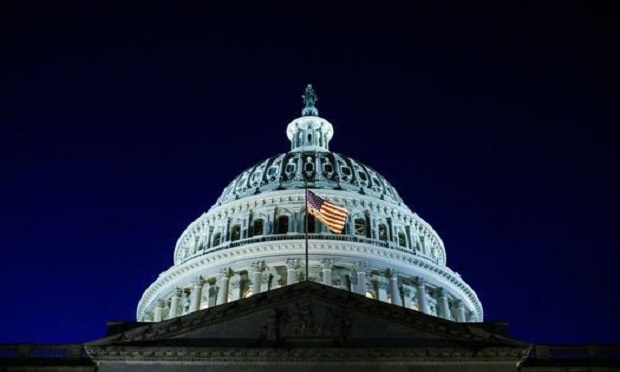 (Photo: Diego M. Radzinschi/ALM)
(Photo: Diego M. Radzinschi/ALM)
In the event that a commercial mortgage loan ends up in default, the lender must be able to realize on the collateral upon the exercise of remedies. If the collateral is destroyed or severely damaged by, for example, a flood or an act of terrorism, the value of the underlying asset will be greatly diminished or, in some cases, fundamentally eradicated (save for the value of the land). Insurance plays a crucial role in protecting the lender from such a loss.
Federal programs in the U.S. have made insurance more readily accessible to protect real property in the circumstances mentioned above, specifically, the Terrorism Risk Insurance Program (TRIP) and the National Flood Insurance Program (NFIP).
These programs enable flood and terrorism insurance to be widely available at realistic price points by ensuring that the amount of the premiums payable for such insurance remains at a level that a borrower can afford, which in turn preserves the underwritten economics of the loan transaction.
Without further governmental action, both TRIP and NFIP were set to expire—at the end of 2020 and at the end of last year, respectively—with no alternative scheme in place. The failure to have renewed these programs most likely would have disrupted stability not only in the insurance markets, but also in the real estate markets overall, including the commercial mortgage lending markets.
To the relief of insurance companies, property owners, and lenders, recent bipartisan congressional legislation reauthorized TRIP and NFIP. The reauthorizations are part of the $1.4 billion omnibus spending package, which funds the federal government through 2020, known as the "Further Consolidated Appropriations Act, 2020" (Appropriations Act). These reauthorizations, importantly (if only temporarily, particularly the case of the flood insurance reauthorization) provide consistency and stability in real estate markets that are highly dependent on these programs.
Terrorism Insurance
TRIP, which was established after the 9/11 attacks and the period of disarray in the insurance markets that ensued thereafter, requires certain private insurers to offer coverage against acts of terror that otherwise would be too risky to provide without federal assistance. Under TRIP, the federal government acts as a backstop to private insurance providers in the event insurance proceeds are required to be paid out under claims due to a terrorist attack. A predetermined formula is used to calculate the amounts of proceeds that each of the government and the insurer must provide.
Under TRIP, the U.S. federal government guarantees that if the damage caused by a terrorist act (which must be certified as such by the Secretary of the Treasury) is over a certain threshold amount, it will pay for most of the damages, up to the "program cap" of $100 billion annually. The cap also applies to private insurers—i.e., insurers are not required to pay for losses due to terrorist acts in excess of $100 billion annually. Although the program has never been triggered, it offers an important sense of stability to the real estate and lending markets.
Prior to the passing of the Appropriations Act, commentators warned of the potential impact that a failure to renew TRIP would have on the market. Warnings of substantially inflated premiums and a lack of coverage options (or a total lack of the existence of coverage) seemed plausible. The catastrophic events of 9/11 displayed the unfathomable damage that an act of terror can cause. Without the government's guarantee, the risk would be too great for private insurers to carry at costs that property owners could afford. Under the Appropriations Act, TRIP will now expire on Dec. 31, 2027.
Flood Insurance
The NFIP is the national flood insurance program that was instituted by the Federal Emergency Management Agency (FEMA) in 1968 to cover vulnerable properties from flood damage, which was often excluded from property insurance coverage. Federally regulated lenders must require that flood insurance be obtained on any property that they lend on and that is located in an area identified by FEMA as a special flood hazard area (flood zone). The Biggert-Waters Flood Insurance Reform Act, which previously extended NFIP, expired in 2017.
Since then, the U.S. Congress has repeatedly passed short-term legislative measures that renewed and kept the program afloat. The current reauthorization of NFIP under the Appropriations Act, although it renews the program for only six months (it is currently set to expire on Sept. 30, 2020), provides an important measure of stability for insurance coverage for millions who own property located in a flood zone. With an uptick in extreme weather events hitting the United States, both property owners and their lenders increasingly rely upon flood insurance.
The unpredictability of the availability of this program and the potential implication of a lapse in coverage for properties most at risk for flood damage mean that a failure to reauthorize the program could bring sales of such properties to a halt, or eliminate lenders' willingness to provide mortgage loans encumbering such properties. Either result would leave all parties that own or provide financing for flood-prone real property unclear on the value of those assets. For now, however, the markets are stable.
The ability of a property owner and its lender to protect their respective interests in real property from losses due to damage or destruction resulting from floods and terrorism is crucial to safeguarding the return on their investment. Thus, ensuring that the aforementioned insurance coverages remain available to property owners/borrowers at premiums that they can afford is of utmost importance to the stability of real estate markets, including the lending markets, and the economy at large. The passage of the Appropriations Act was an important measure in preserving such stability, for a time at least.
Jeffrey B. Steiner and Scott A Weinberg are partners at McDermott Will & Emery. John Bauco and Lauren A. Sellman, associates at the firm, assisted in the preparation of this article.
From: PropertyCasualty360
© Touchpoint Markets, All Rights Reserved. Request academic re-use from www.copyright.com. All other uses, submit a request to [email protected]. For more inforrmation visit Asset & Logo Licensing.



